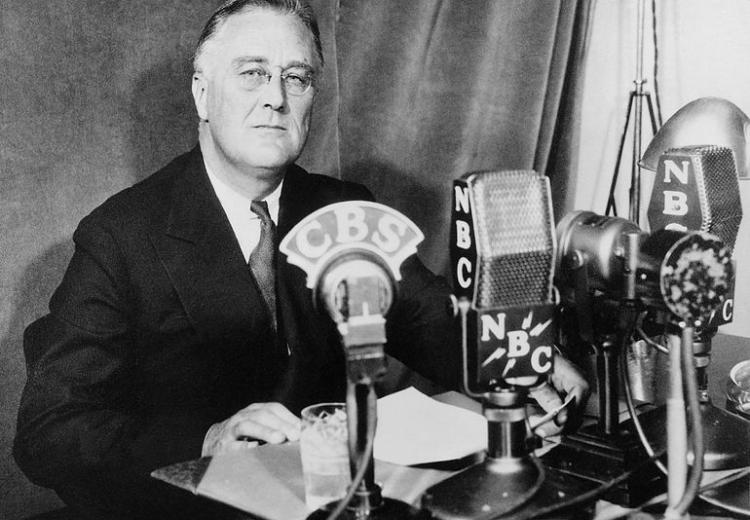FDR: Fireside Chats, the New Deal, and Eleanor

Photograph of Franklin D. Roosevelt at the White House in Washington, D.C., delivering a national radio address on September 30, 1934.
The 1930s were an era of profound change in America that especially affected the relationship between the American people and the federal government. It was in these tumultuous times that Franklin D. Roosevelt steered the country through economic perils and major social changes.
Guiding Questions
Did the New Deal save the United States from the Great Depression?
How has the New Deal influenced the policies of other Presidents?
What has Eleanor Roosevelt meant for women's rights and civil rights?
How should President Franklin Roosevelt be remembered in history?
Learning Objectives
Analyze the events and circumstances surrounding the onset of the Great Depression and the election of FDR.
Evaluate FDR's policies and the expansion of the role of government in domestic affairs during this period of time.
Evaluate FDR's policies and the expansion of the role of government in international affairs during this period of time.
Analyze the short and long term influence of the New Deal on successive Presidential Administrations.
Evaluate the extent to which progress around civil rights in the U.S. was made during FDR's presidency.
Analyze the short and long term effects of Eleanor Roosevelt's involvement in social and political issues.
Evaluate the legacy of FDR's time as President.
